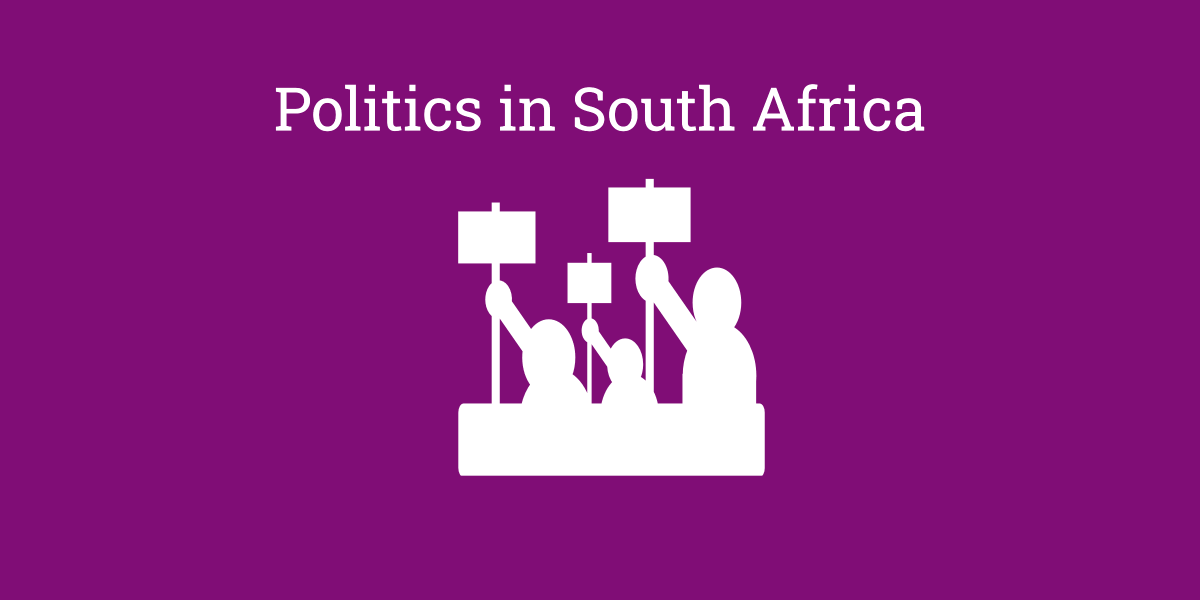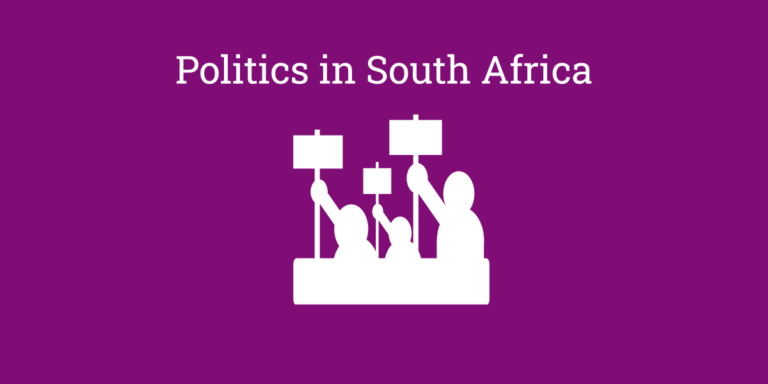A reminder to the ANC that it needed to deepen democracy in society arrived at the ANC’s Polokwane conference, where one major gripe against President Mbeki was that he had failed to create “policy coherence” amongst the ANC and its alliance partners, let alone the broader society. Mbeki was criticised for insulating public policy through technocratic methods, and failing to build consensus in society beyond the so-called chattering classes. Whilst Mbeki’s vision for a post-colonial society that worked rested on making unpopular decisions, it was at least palpable.
President Jacob Zuma’s administration repeats Mbeki’s mistake, but in more hidden ways. Nevertheless, it’s exactly the same thing: attempting to insulate public policy choices from contestation in society, and as a consequence failing to build policy consensus in society. This is most visible in the establishment of various presidential panels to advise on key policy areas of black economic empowerment (BEE), state owned enterprises (SOE) and developing the national plan.
The insulation of the public policy process can be explained via two competing explanations. On the one hand, government, it is argued, is ready to make difficult and unpopular decisions. This explanation of the insulation of public policy however neglects to understand that making unpopular decisions requires quick action, and a detailed political strategy. Both are absent from the Zuma administration, as he is reliant on these panels to develop a policy package on which to build a political strategy.
Zuma is attuned to the dynamics of the ANC and certainly has a “political strategy” in terms of the narrow internal politics of his party, but what he lacks is a broader programme of leading society.
On the other hand, a more reasonable explanation is that the Zuma administration is overwhelmed with uncertainty. The brouhaha surrounding the SOE review is a case in point. The Zuma administration has provided little clarity on the scope of work for the presidential panel, which seemingly co-exists with a review headed up by the Ministers of Public Enterprises, Barbara Hogan and Finance, Pravin Gordhan. The subtext is important, as the presidential panel is more likely to advocate privatisation, while the ministers are likely to emphasise operational improvements.
In the context of such uncertainty, it strengthens the hands of the expert panels that can literally put their heads down, do the work and ignore contestation in society. In the end, they will deliver the “national interest” to us and pulverise dissenting opinions as ‘ultra-leftist’. This will not be based on a cost-benefit analysis or the fact that governments have to take unpopular decisions.
In this regard, Minister of Planning, Trevor Manuel, has offered an early salvo. In attempting to distinguish the planning commission, Manuel referred to the other expert panels as “clubs and societies.” He indicated that the planning commission would do its work “in the national interest.” It is a safe assumption that the panels focussed on BEE and on SOE would also claim to represent the national interest. So too will the dissenters that will mobilise against the reports that will emerge.
Robert Chambers, an influential development thinker, makes a distinction between what he calls “uppers” and “lowers.” “Uppers” are responsible for a litany of failed development initiatives that even with imperfect information were doubtful policy interventions. To be clear, development failures cannot simply be explained by that idiom “hindsight is a perfect science,” but rather that the disconnection of experts from reality and even simple solutions, coupled with their connections to power and complex solutions creates a concoction that leads to bad development choices.
A more radical perspective builds on this insight by bringing power to the fore. The post-development school, which questions the very meaning of the word “development,” offers a challenge to all of us engaged in public policy. The challenge is that without redefining power relations, attempts at development will fail and reproduce poverty and inequality. So the worst scenario would be that the experts agree, make the wrong decisions and then implementation happens in the national interest. The nub of the issue is that in this scenario, inequality would remain high, and unemployment would not decrease.
South Africa has examples. Massive spending on the arms deal while cutting spending on social services is one example. Postponing spending on infrastructure for new electricity generation capacity, when many had foretold rolling blackouts if investment decisions were not taken, is another. In each of these and other choices, dissenting voices made cogent policy argument that were ignored by various “gatekeepers.” The point is that the dissenting experts are not “uppers” – they lack the political connections and access needed to influence policy.
Today, we are poised to make similar and perhaps more damaging mistakes unless processes become more transparent. First, the very structure of the Presidential panels reinforces a hidden insulation of public policy choices, with a veneer of a more accessible government.
Second, the panels have not adopted processes that support engagement and active citizenship. In this instance, none of the panels have clearly articulated a strategy to receive inputs, nor defined their scope and method of work.
Third, government is neglecting the wealth of knowledge in the public service itself. South Africa has a small grouping of public policy practitioners that are connected to day-to-day problems of citizens, who should form the core of developing workable and effective public policy choices.
Fourth, there needs to be a recognition of the core value of deepening democracy through involving citizens, and the organisations that provide them with political and policy voices in developing public policy.
The ANC has forgotten that to lead society means doing the difficult — deepening democracy and building support around public policy choices. Instead, it is reinforcing insulated public policy processes.
The reality is that citizens will not accept expert perspectives of “national interest” without contestation.
The previous administration, under Mbeki, ignored early warnings and served to escalate dissent and popular mobilisation against government’s decisions amongst mass based organisations. There were, of course, other forces at play, but it started in civil society when people recognised that they were being excluded. It is a lesson that the Zuma administration should be astute enough to recognise, but it can only happen if leaders do not only listen to experts.
This article was first published under creative commons license on South African Civil Society Information Service website.

